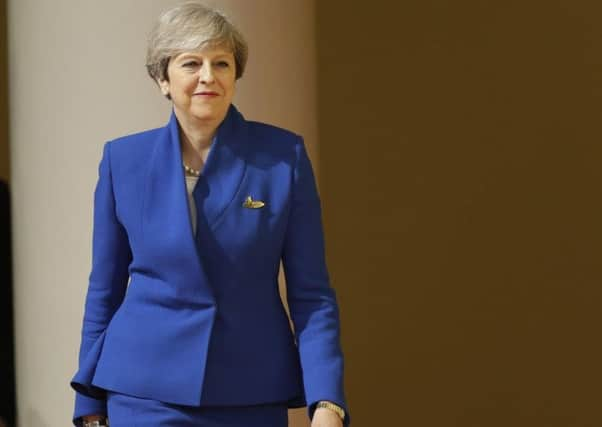Jayne Dowle: PM's deaf ear led to a disaster movie scenario


When she took over the helm of the Conservative Party in July 2016, I had high hopes for the former Home Secretary. Mrs May had her critics, sure, but her long steady stint at the Home Office suggested that, at the very least, she would be a safe pair of hands to pilot us through choppy waters.
She looked victorious emerging from the wreckage created by David Cameron, George Osborne, Boris Johnson and Michael Gove. Her presence seemed reassuring. She appeared above it all, buoyed by a sense of purpose, duty and those over-sized pearls she likes to wear around her neck.
Advertisement
Hide AdAdvertisement
Hide AdThis was a correct assumption, to a fault. Mrs May is above it all, indeed so far above it all that she seems entirely adrift from the people she is supposed to be leading. This is her major fault.
Her record to date brings to the fore a huge debate about how modern political leadership should work.
Let’s not get too distracted however. There’s a country to run. We could talk all day about how her erstwhile advisors, Nick Timothy and Fiona Hill, failed to anticipate the mood of the British people at the General Election in June. We could blame the influence of social media, terrorism and even the damp and dreary weather for the air of doom which hung over the event.
Such generalised self-flagellation, however, does no-one any good.
Advertisement
Hide AdAdvertisement
Hide AdThat was then. This is now. And we have a government in stasis and by all accounts, a febrile atmosphere at Westminster which sees MPs confined to barracks while their constituents are wondering if there are actually going to do anything to earn their keep this side of Christmas.
The Prime Minister needs to formulate both a plan and a leadership stance which will repair some of the damage which has been caused, both to her own credibility and the country in general.
And it’s not just about Brexit. Although the issue of our position in Europe is huge, it’s by no means the only thing on the minds of ordinary people, believe me.
For instance, thousands of primary school children – like my 11-year-old daughter – have just received their SATs results and are about to embark upon secondary school. We parents want to know that they will go on to receive the best education possible to equip them for adult life. We don’t want them to end up as collateral damage in ideological warfare over selective education, free schools and yet more curriculum reform.
Advertisement
Hide AdAdvertisement
Hide AdThe most important thing Mrs May can do right now is listen. And I mean really listen, not just hear what people are saying and then fail to act. We notice this most poignantly when she is forced to deal with the troubled matter of public sector pay and conditions. Telling teachers not to expect more than a paltry pay rise for the foreseeable future – and informing nurses that they are lucky to have a job at all – is far from astute.
We also see it in the clear confusion the Prime Minister displays over the so-called “gig economy” highlighted by Matthew Taylor’s new report this week. No politician can know everything, but a wise politician knows how to find out what the people are really worrying about. And job security comes fairly high at the top of the list.
This lack of what we might call “a political ear” has so far been her undoing. It is a quality difficult to define precisely, but all good politicians possess it.
Margaret Thatcher did, when she took the concerns of working class and lower middle class Tories to heart and turned their anxieties over home ownership, punishing taxes and the inflated state into her own personal credo. So did Tony Blair, who sensed the yearning for a new dawn in British politics when he began his ambitious plan to formulate “New Labour” in the 1990s.
Advertisement
Hide AdAdvertisement
Hide AdBeing responsive is not a sign of weakness, it is an indication of political strength.
Last autumn, when Mrs May had been in office for several months, I remember observing that she reminded me of a British Prime Minister in a disaster movie. Not a cardboard cut-out exactly, but a political leader conjured up to lead the country through the most testing of times with no actual feeling for the job.
It is no stretch of the imagination to conclude that the last 12 months have been nothing short of a disaster movie for Mrs May, in all senses. If she can’t learn to listen, I’m not holding out much hope for the sequel.